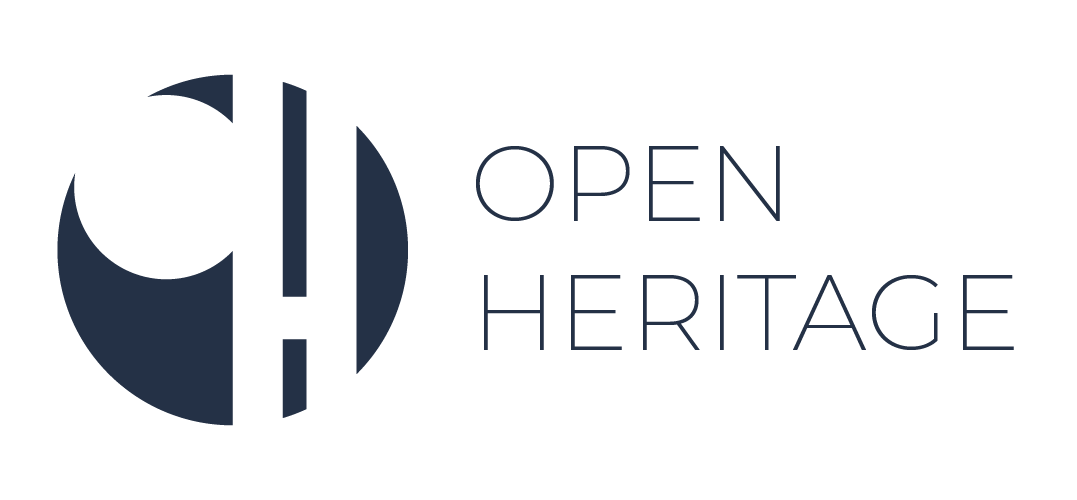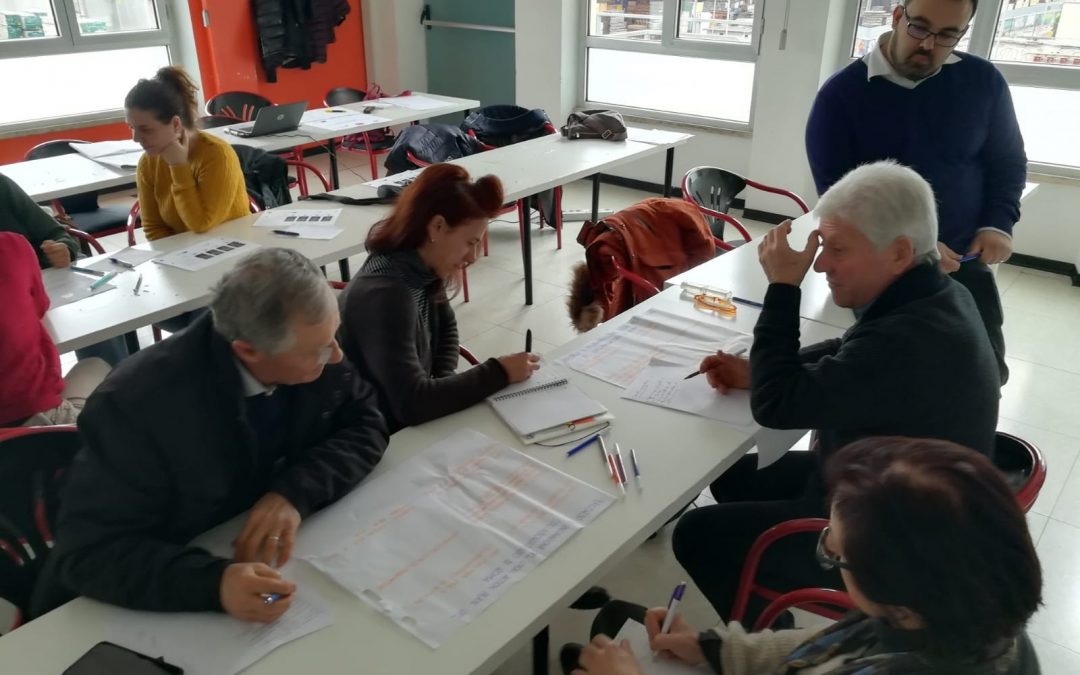In January 2019, the Rome Collaboratory started its work in several most difficult eastern districts of the Italian capital – Alessandrino, Centocelle and Torre Spaccata. The Rome Collaboratory, coordinated by LUISS University through LabGov.city, is one of six experimental Cooperative Heritage Lab (CHL) of the OpenHeritage project. In March – April 2019, the LUISS team run a co-design lab of the Local Action Plan (LAP) of the Rome Collaboratory to define actions that will be implemented during the first year of the Collaboratory activity. The lab saw the participation of a variety of actors, including the neighbourhood cooperative.
Local Action Plan
The co-design process, coordinated by the LUISS LabGov team, aimed at defining the mission and objectives of the Local Action Plan. The Local Action Plan is a strategic planning document that defines the activities of the Rome Collaboratory in June 2019 – June 2020. It aims at creating a heritage community and identifies strategies of stakeholder engagement and actions to enhance sustainable financial models in the neighbourhoods of the Centocelle area.
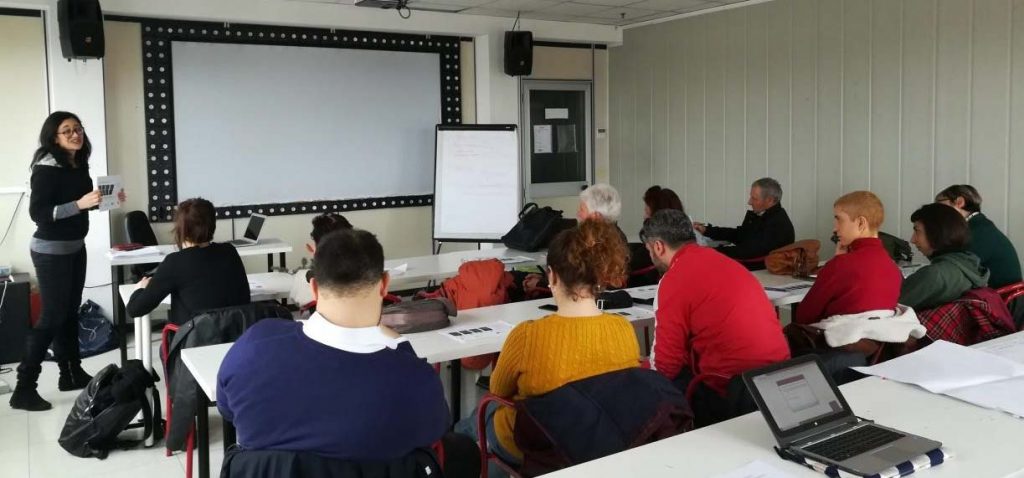
Co-design session at Fusolab2.0 community hub in Alessandrino
The co-design lab consisted of four meetings, each including several co-working session. Multiple co-design tools were proposed for each session, allowing the participants to focus on their expectations, desires, and skills that they could bring into the Rome CHL as well as to identify potential obstacles. The co-design tools helped to define the activities to be carried out within the CHL and the necessary resources, such as time required for realisation or a communication strategy to gain the involvement of local stakeholders. During the co-design phase of the Local Action Plan preparation, a picture of core elements has emerged.

Co-Design Lab at the Fusolab2.0 community hub in Alessandrino
What to expect?
Bike tours around the heritage site are the first service that the Rome Collaboratory will develop. The group preparing them has already started its work and is expected to overcome the existing challenges soon. Besides the bike tours, the group is also planning to organise a diffused neighbourhood-based and cooperatively managed hotel. Both activities aim to change the way people perceive and live the heritage area of Centocelle as well as to provide economic sustainability for the CHL by triggering economic development. This will make possible an authentic and human experience through the rediscovery of Centocelle cultural heritage.
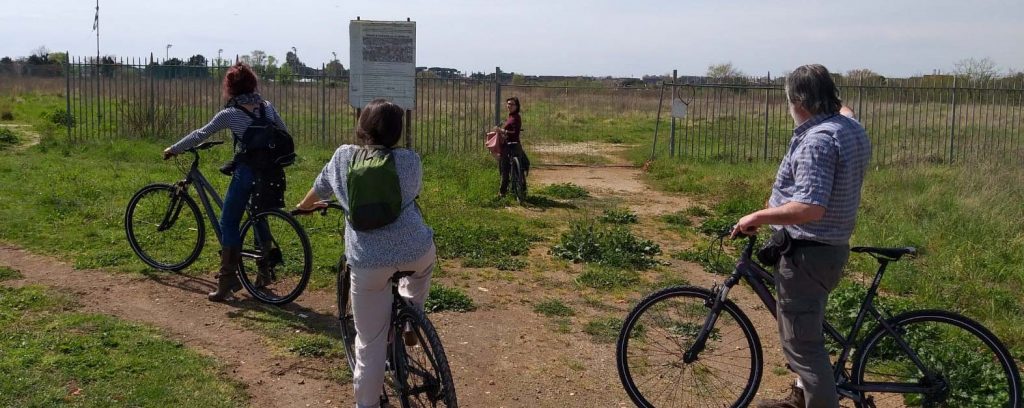
Bike tour within the Park of Centocelle
Another activity being prepared is the Living Memory Exhibition. The focus group is planning a co-creation laboratory which will take place over the LAP duration and which will involve city inhabitants and artists in photographic, artistic and musical exhibitions. It seeks to express an innovative re-interpretation of the local heritage and its meaning for the surrounding neighbourhoods as well as to help disseminate and promote the Collaboratory activities.
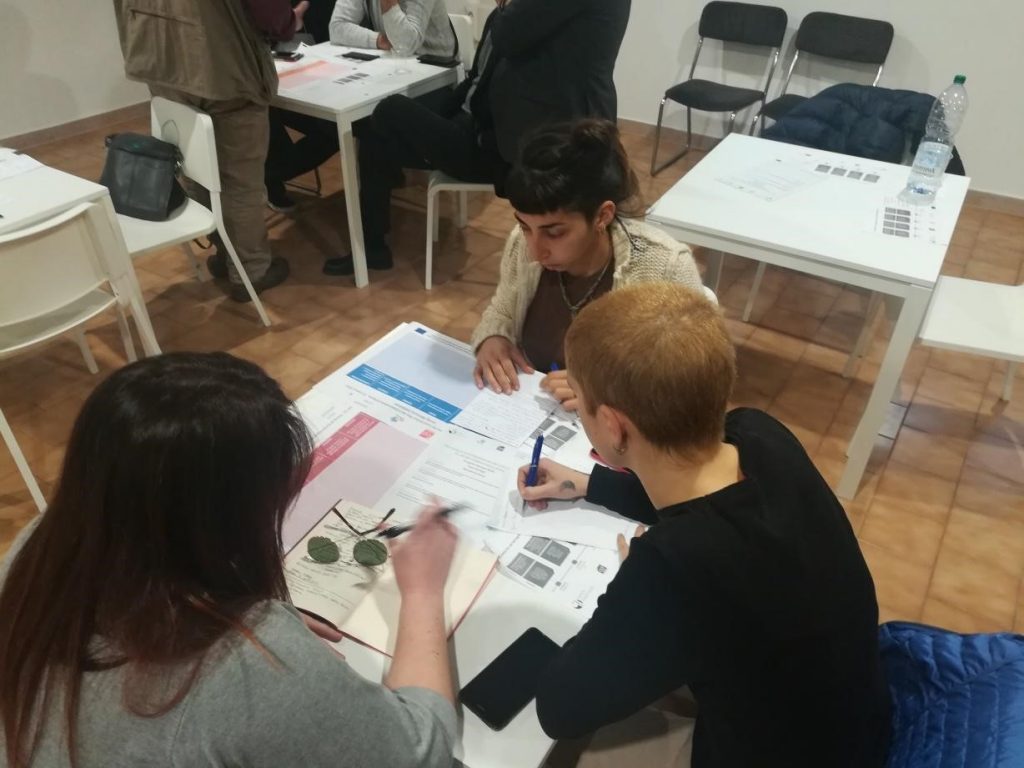
Co-design session inside a commons space in a privately managed area of the Park of Centocelle
The third group is focusing on the Local Campaign. As part of the Local Action Plan, the group is developing a communication campaign that aims to give visibility to the activities of the CHL and increase awareness of the value of the Centocelle heritage. The campaign will be both digital and on-field with a strong place-based approach. The Rome Collaboratory will also organise a photography, poetry and writing contest open to all bike tours’ participants to promote the heritage site in its historical, cultural, economic and social dimensions.
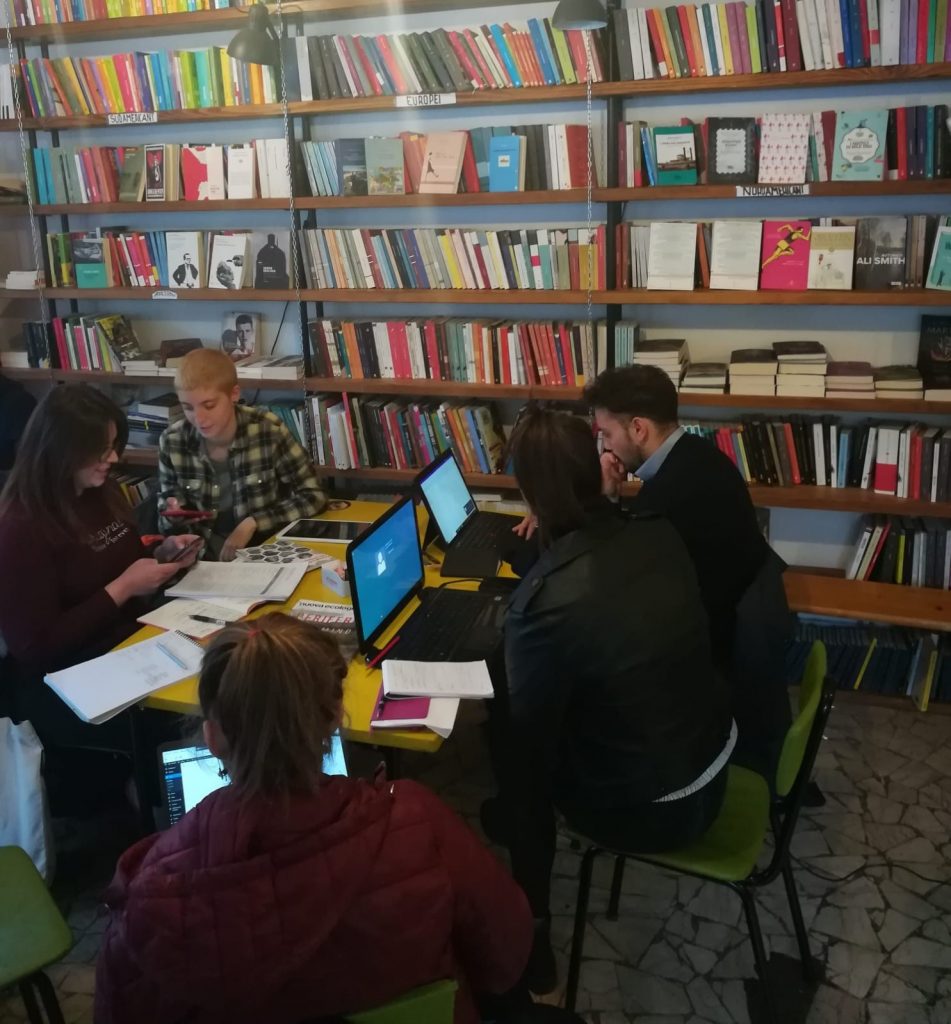
Co-Design session at Pecora Elettrica, Centocelle
Actors
The co-design lab saw the commitment of several actors involved in the neighbourhoods’ social and economic ecosystems, including local shops, local NGOs, district committees and individuals. To broaden the visibility of the CHL, an informal and digital involvement process has been launched.
One of the first event to mobilise local support has been carried out by a neighbourhood cooperative, incubated within the process, and which has become a key participant of the Rome Collaboratory. This cooperative activated the local network through the initiative “M’illumino di meno”, launched by a national environmental NGO, Legambiente. Aiming to promote anti-waste practices in the food system, the event consisted of the organisation of a low-energy consumption dinner. For instance, lights were turned off, candles were used to illuminate dining rooms, and the meals proposed were composed of food usually wasted, such as potato peels. The cooperative eventually managed to involve 23 restaurants in the area.
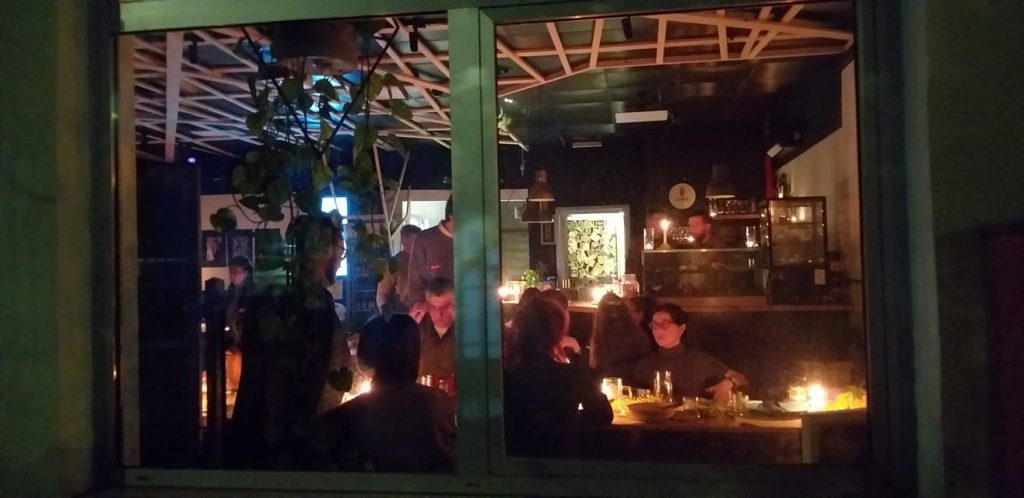
No-waste dinner at Fusolab 2.0
The #collab_bike tour
To share and circulate the ideas that have arisen out of the co-working session, the cooperative will organise the Civic Collaboration Day on the 4th of May. The participants of the #collab_bici, a bike tour, will have an opportunity to discover beautiful places left aside by mainstream touristic trips. The first part will be dedicated to a visit of the Centocelle archaeological Park and will be followed by a lunch at a local restaurant founded by a member of the neighbourhood cooperative. The event, named “#collab_bike tour”, will be the cornerstone of a series of bike tours that will be organised in the Centocelle archaeological park. In particular, it will be a demonstration event to be replicated during the Sustainability Festival, a macro-event organised by the Italian Alliance for Sustainable Development (ASVIS) to promote awareness about environmental sustainability.
